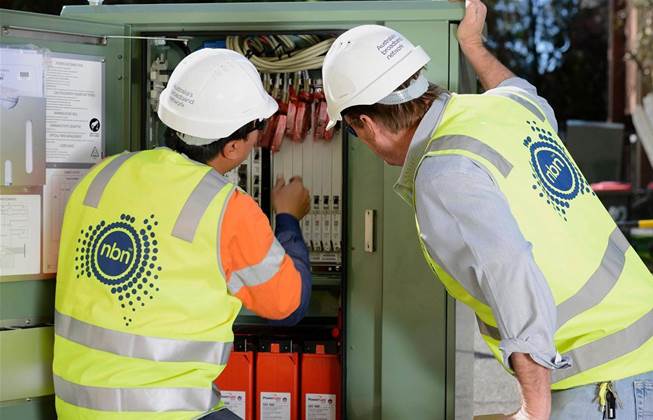NBN Co is fighting a government-led bid to create an unlimited “entry-level” product for $60 a month by challenging the extent to which that sweet spot ever existed in Australia’s broadband market.

The network builder’s defence to an Australian Competition and Consumer Commission (ACCC) plan to more heavily constrain its price-setting capabilities was released late Wednesday. [pdf]
A key part of its defence hinges on the extent to which baselining NBN services at $60 retail a month makes sense.
The $60 retail price point has long been a sweet spot for ADSL services.
In addition, most early NBN services marketed as ‘ADSL-equivalent’ came in at (or under) the $60 mark, and even NBN Co itself notes there is plenty of choice at this price level right now.
But NBN Co isn't keen to see $60 retail entrenched as Australia's basic broadband cost.
It claims the ACCC “has placed over-reliance on the need to replicate a single $60 retail price point for entry level services with unlimited data.”
“The ACCC’s proposed benchmark retail price point of $60 cannot be shown to be the single ‘efficient’ price point and too much weight has been placed by the ACCC on this $60 price point,” NBN Co said.
“The $60 price point is based on legacy ULLS [unbundled local loop service] pricing available only in CBD, metropolitan and large regional areas, which was based on a theoretical cost model that the ACCC itself has moved away from.
“In contrast, NBN Co’s policy mandate is to rectify the shortcomings of ULLS-based pricing by delivering competitive broadband on a national basis, including in remote areas left behind by the previous ULLS pricing approach.”
NBN Co said that off-net ADSL users paid well above $60 a month retail and received much less data quota.
NBN Co argued that an unlimited 12/1Mbps product for $60 a month retail would break its “user pays” pricing system.
In particular, the pricing would effectively cut into the cross-subsidy built into 12Mbps products, which is meant to contribute funding for the more uneconomic portions of the network - fixed wireless and satellite, NBN Co argued.
“All fixed-line services must contribute to the cross-subsidy, including 12/1 entry level services,” it said.
“The cross-subsidy is a real and direct cost independently estimated at $7.09 per fixed line service per month.
“If entry level end users do not contribute, other end users will need to contribute disproportionately more, which undermines the ability of NBN Co to offer more affordable prices for higher speed services except to those few end users who place a very high premium on performance, seriously undermining NBN Co’s cost recovery.”
And, in a nod to a separate ACCC inquiry that NBN Co claims RSPs want to ‘game’, NBN Co argued an unlimited 12Mbps tier could also be “gamed”.
“The ACCC’s model would also incentivise gaming by RSPs, who could place high-use end users on the anchor product without being required to bear any associated cost implications,” NBN Co said.
“It is inefficient and detrimental to the long-term interests of end users for the ACCC to effectively encourage end users who are using large volumes of data to remain on entry level plans once their broadband habits exceed that of a true entry level user (both in terms of data consumed and the number of concurrent devices operating).
“This would be a step backward for Australia and would undermine the reason that NBN was created: to ensure that all Australians have affordable access to very fast broadband.”
NBN Co said that if this occurred, end users may not feel encouraged to “migrate to the appropriate broadband speed for their current and evolving needs.”
The company is clearly worried this would stifle its ability to create a slow march of users up to more expensive plans, as it needs to do in order to raise average revenue per user (ARPU) and keep alive the hope of generating a commercial return for the government.
NBN Co is still hoping to ward off the ACCC with new price offers it has announced since the commission first started looking into the company's price-setting capabilities.
Among those new offers is a further-discounted entry-level product called the modified entry-level bundle (M-ELB).
NBN Co claims this is the answer to everyone’s problems, though retail service providers appear less confident that is the case.




_(20).jpg&h=140&w=231&c=1&s=0)






 iTnews Executive Retreat - Security Leaders Edition
iTnews Executive Retreat - Security Leaders Edition
 iTnews Benchmark Awards 2026
iTnews Benchmark Awards 2026
 iTnews Cloud Covered Breakfast Summit
iTnews Cloud Covered Breakfast Summit
 The 2026 iAwards
The 2026 iAwards












_(1).jpg&h=140&w=231&c=1&s=0)



